75 years of protecting animals
From our founding in the 1950s to global victories in wildlife protection and farmed animal treatment, explore how we’ve transformed the future for animals, one milestone at a time.
We’re World Animal Protection. We’ve been on a mission to change the way the world works to end animal cruelty and suffering for over seven decades.
As we’ve grown in both size and influence, we’ve helped raise the profile of animal welfare on a global scale, moving people, companies and governments to act to transform the lives of animals across the world.
Here are just a few of our highlights from the last 75 years:
Jump to:
1950s-1970s
- The World Federation for the Protection of Animals (WFPA) was established in 1950 to lobby governments across Europe and Africa to improve animal protection laws and increase awareness of animal welfare issues.
- The International Society for the Protection of Animals (ISPA) was founded in 1959, focused on campaign and animal rescue work, in Latin America, Europe and Africa.
- In 1964, an animal officer from ISPA, John Walsh, rescued 10,000 animals from floodwaters in Suriname, kickstarting decades of disaster response expertise.
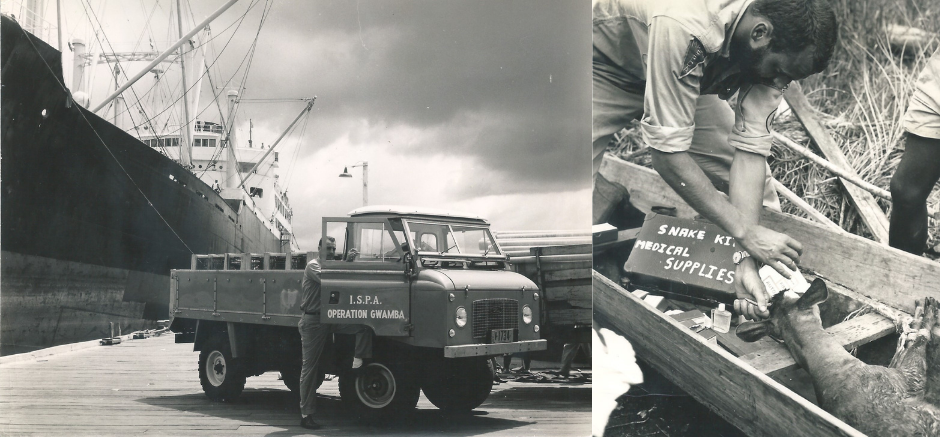 John Walsh and the local community rescued 10,000 wild animals from flood waters in Suriname, 1964.
John Walsh and the local community rescued 10,000 wild animals from flood waters in Suriname, 1964.
- In the 1960s, our lobbying efforts helped convince the Council of Europe to adopt the ‘European Convention for the Protection of Animals during International Transport’, setting minimum welfare standards across much of Europe for animals being transported. This laid firm foundations for our lobbying work to reduce the suffering of billions of farm animals trapped in intensive farming systems around the world.
- WFPA and ISPA agreed to merge in 1975 to become one major international animal protection organization, eventually becoming the World Society for the Protection of Animals (WSPA).
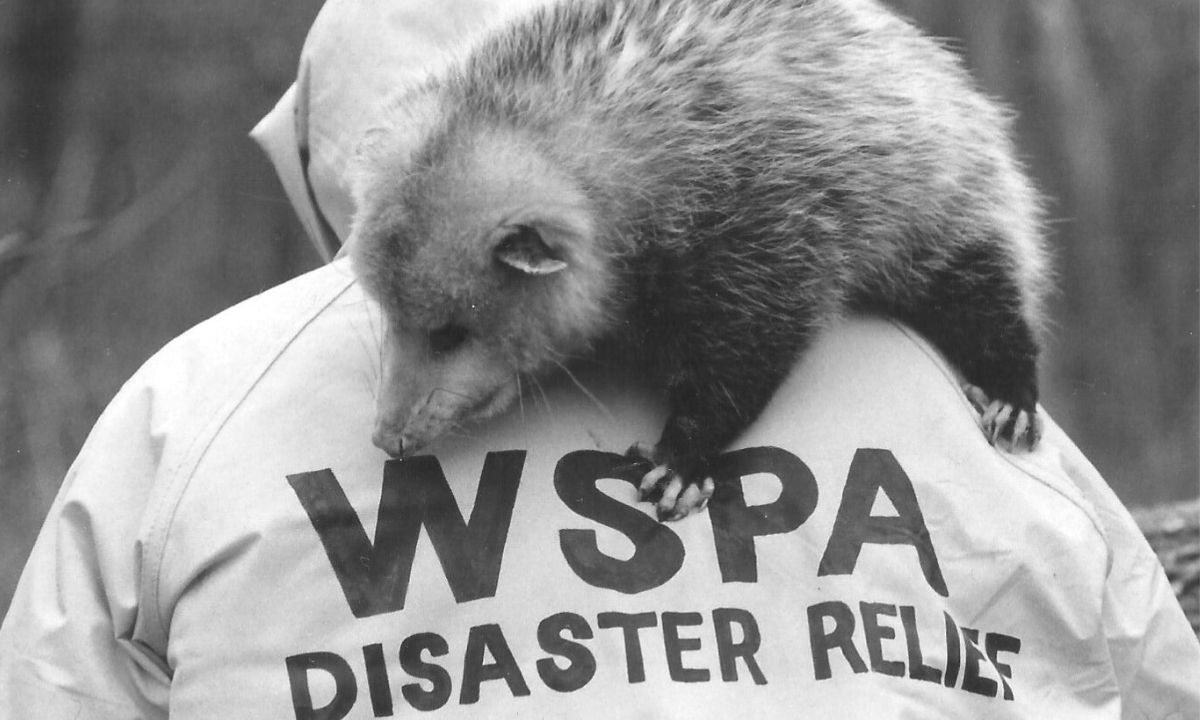
1980s
- In the 1980s, we achieved consultative status with the United Nations, amplifying our influence in global animal welfare policy.
- Opened our first animal shelter and clinic in Costa Rica in 1983 to help abused and stray animals. This clinic later expanded to house rescued wildlife and marked the start of a long legacy in wildlife rescues, rehabilitation and release.
- Successfully campaigned for India and Bangladesh to ban the export of frogs' legs in 1987 and 1989 respectively, protecting millions of wild frogs from brutal slaughter and ecological collapse.
- In the early 1980s, WSPA expanded into Canada, establishing an office in Toronto! 🍁
1990s
- Launched global campaigns to stop the exploitation of wild animals in circuses, zoos and tourist attractions, shifting public opinion on animal cruelty.
- 1992 saw the launch of one of our longest running and most successful campaigns: Libearty, which focussed on the exploitation and suffering of the world’s bears. We opened the world’s first bear sanctuary. Since then, with our partners around the world, we’ve established and supported bear sanctuaries around the world.
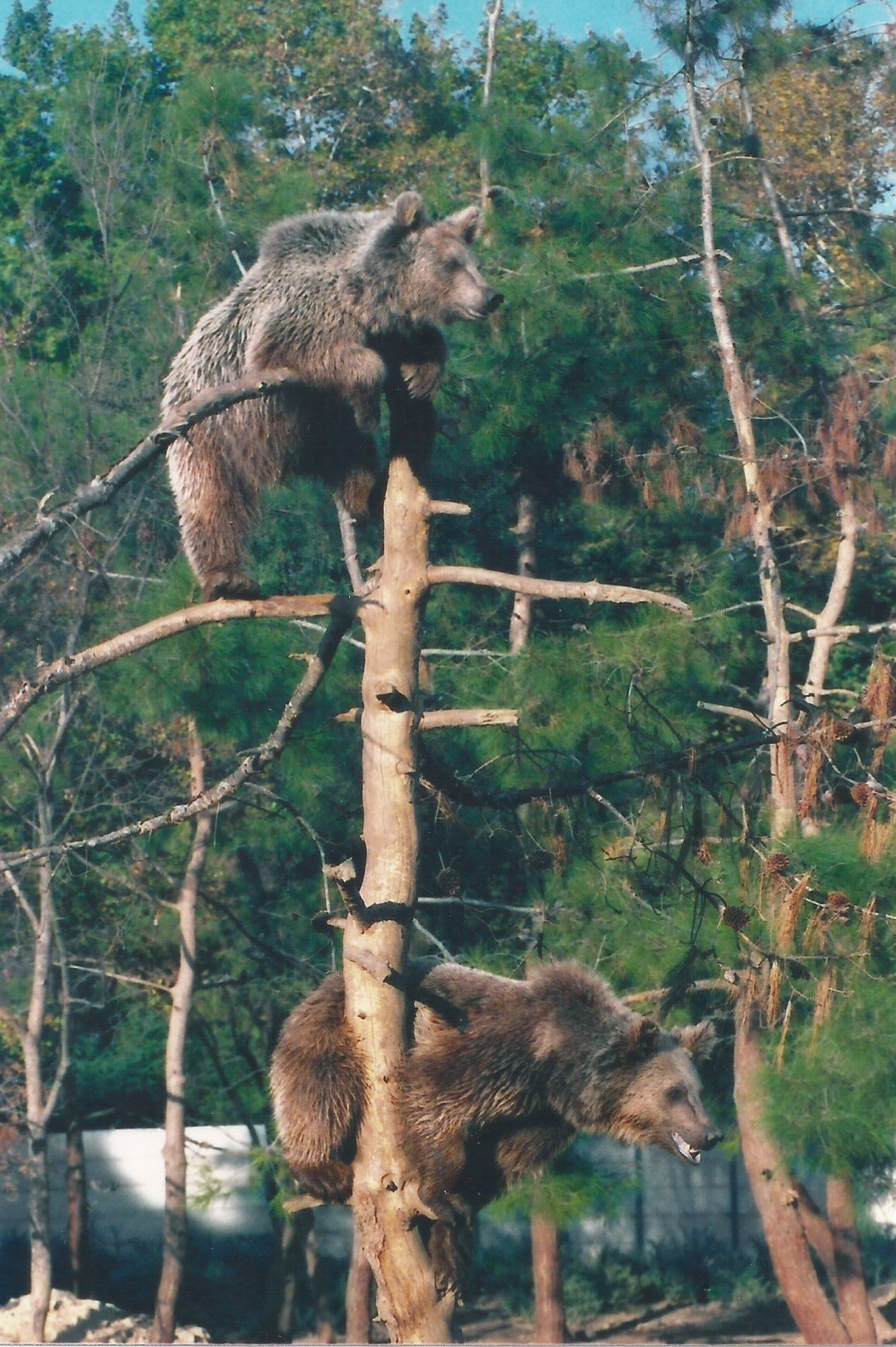
- We exposed the suffering behind the fur industry, which helped to lead to a ban on the use of leghold traps and the import of certain furs across much of Europe in 1995.
- In 1992, we were invited to become part of the World Health Organization’s Expert Committee on Rabies where we championed humane vaccination and stray dog control over ineffective ‘catch and kill’ methods.
- We launched our Pet Respect program in 1994 to help countries deal with the huge numbers of stray animals, many sick or injured, roaming their streets.
- Supported an orangutan rehabilitation in Borneo, leading to the rescue and re-release of hundreds of apes displaced by deforestation.
2000
- In 2000, we established the first clinic in Colombia offering free veterinary care, training for owners and a rehoming program for working horses in need.
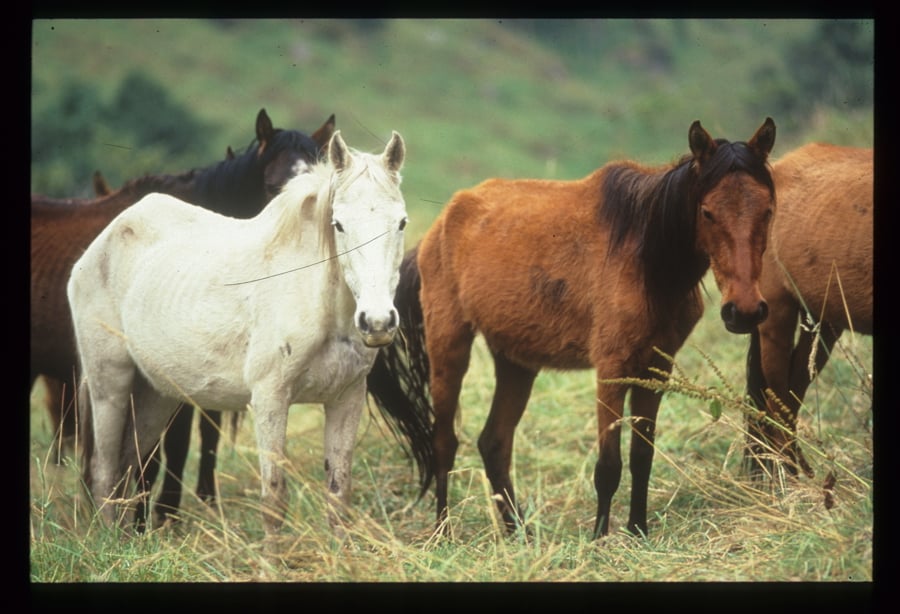 Rescued horses in Colombia. (Photo: WSPA)
Rescued horses in Colombia. (Photo: WSPA)
2002-2003
- Partnering with the University of Bristol, we developed Concepts in Animal Welfare in 2003, a pioneering curriculum that integrated animal welfare science into veterinary training.
- Alongside Brooke Hospital for Animals, we launched a project in war-torn Afghanistan, treating thousands of horses, donkeys and livestock and providing vital care education for owners.
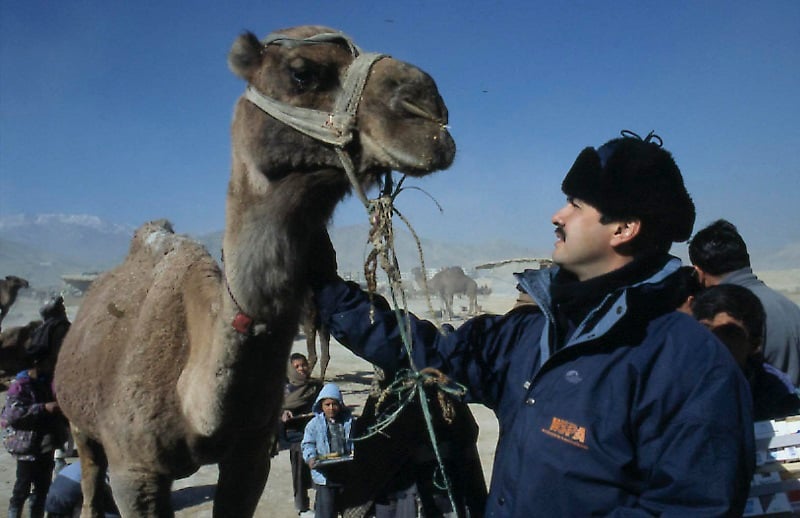 A camel being treated at the clinic in Afghanistan, 2022. (Photo: WSPA/Jonathan Pearce)
A camel being treated at the clinic in Afghanistan, 2022. (Photo: WSPA/Jonathan Pearce)
2004-2005
- In 2024, we were invited by the Humanitarian Allied Forces to be involved in a military exercise planning for future responses to natural disasters. This was the first ever participation by an animal protection organisation and it involved military representatives from 22 countries. This laid the foundation for our future work building animal protection into countries’ disaster response and risk reduction plans.
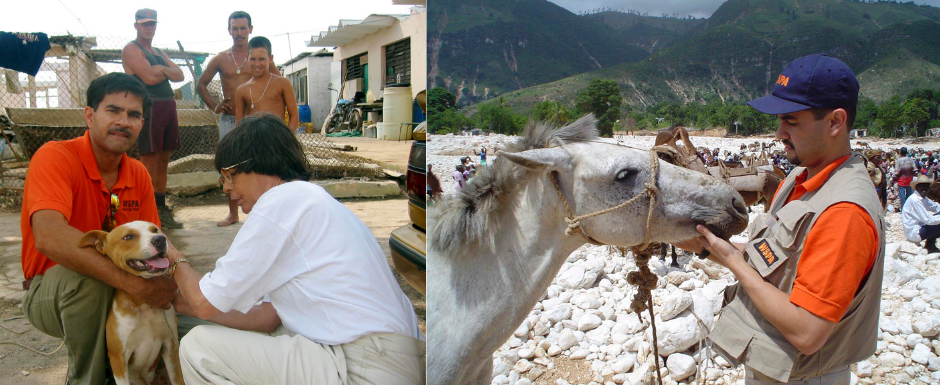 Left: WSPA staff delivery aid to animals in Cuba following Hurricanes Charlie and Ivan, October 2024. Right: WSPA staff checks a horse after flash floods in Haiti, July 2004. (Photos: WSPA)
Left: WSPA staff delivery aid to animals in Cuba following Hurricanes Charlie and Ivan, October 2024. Right: WSPA staff checks a horse after flash floods in Haiti, July 2004. (Photos: WSPA)
- The first ever global standards for farm animal welfare were adopted by the World Organization for Animal Health (OIE) in 2005. This landmark saw 167 countries, some of which had no national animal protection legislation of their own, adopt guidelines on animal transportation and more humane slaughter methods, signaling that farm animal welfare had become an issue for official attention at a global level.
2008-2009
- We piloted a new approach to animal welfare education in Nicaragua and Cambodia in 2008, empowering equine owners to teach each other, creating a ripple effect of better animal care.
- In 2009, we enabled the world's first release of bonobos, following their care at a centre specializing in looking after orphans whose mothers were killed by hunters.
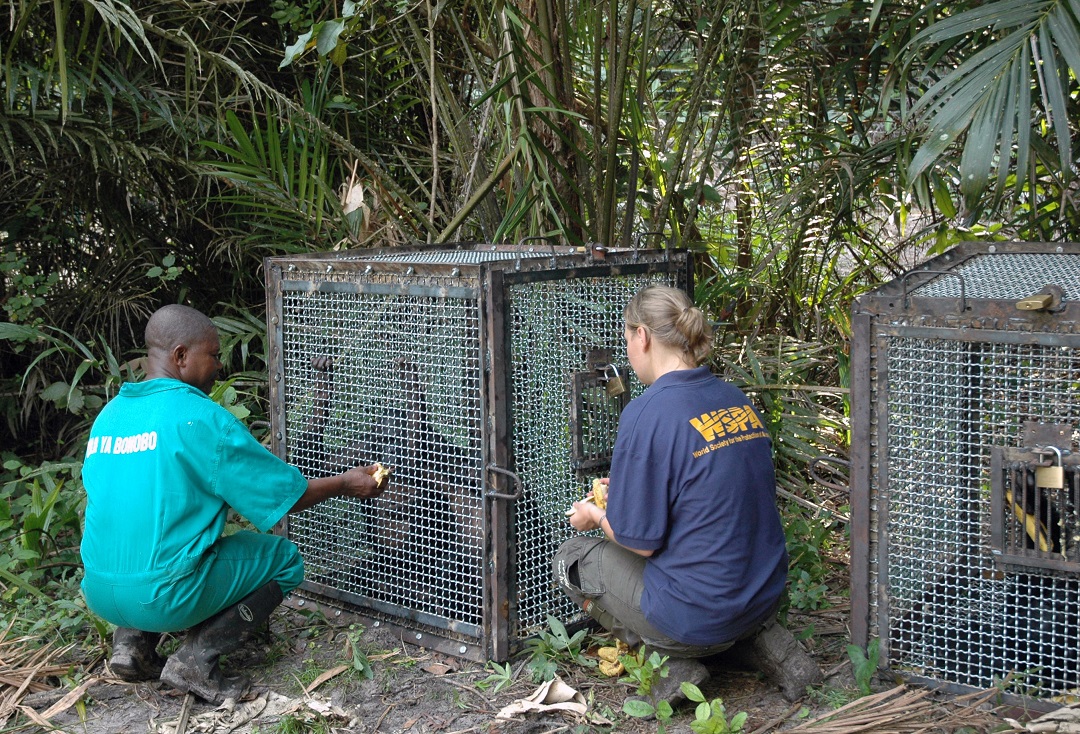 In June 2009, Lola ya Bonobo sanctuary (run by WSPA member society Les Amis des Bonobos) became the first sanctuary to reintroduce bonobos to the wild when they released a group into a remote forest area in the Democratic Republic of Congo. (Photo: WSPA)
In June 2009, Lola ya Bonobo sanctuary (run by WSPA member society Les Amis des Bonobos) became the first sanctuary to reintroduce bonobos to the wild when they released a group into a remote forest area in the Democratic Republic of Congo. (Photo: WSPA)
2010
- In 2010, TUI Nederland became the first major tour operator to stop selling and promoting elephant rides and shows, setting a precedent for ethical tourism.
- Following the success of a pilot program that we supported, Bali launched an island-wide dog vaccination campaign in 2010, and within a year, 210,000 dogs were vaccinated, cutting human rabies deaths in half. We also partnered with the government of Bangladesh, a country with one of the highest rates of human rabies cases, to vaccinate hundreds of thousands of dogs. This led to agreements to end inhumane dog culls, replacing them with humane rabies control.
2012
- Alongside the UN Environment Program, we hosted the world’s first ever symposium on the impact of marine litter on animal welfare in 2012. This laid the foundations for the Global Ghost Gear Initiative; the first initiative dedicated to tackling the problem of abandoned, lost, and discarded fishing gear (ghost gear), which kills hundreds of thousands of marine animals each year.
- The UN Earth Summit marked a milestone as animal welfare was formerly linked to discussions on sustainable development for the first time. This progress continued, and recently, because of our work and that of our allies, the UN Environment Assembly recognized the inextricable link between animal welfare and the environment, adopting the ‘Animal Welfare – Environment – Sustainable Development Nexus’.
- Launched our report ‘What’s on your plate? The hidden costs of industrial animal agriculture in Canada’. This was the first comprehensive multi-disciplinary review of the impacts of factory farming in Canada and involved 13 Canadian scientists and academics.
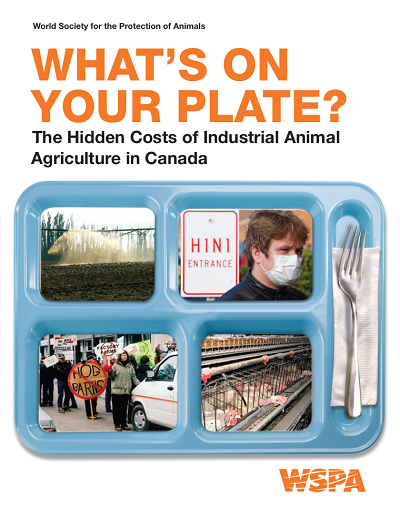
2013-2014
- In 2013, we began working with the Indian government to improve the welfare of 199 million dairy cows. We worked with the country’s National Dairy Research Institute to produce the sector’s first ever code of practice.
- Intrepid Travel became the first global travel company to take a stand against elephant rides and shows, sparking a movement across the travel industry.
- In 2014, the World Society for the Protection of Animals became World Animal Protection. Our new name clearly and simply demonstrates who we are and what we stand for.

2015
- In 2015, we launched our Wildlife. Not Entertainers. campaign, which exposed the cruelty behind wildlife tourism, focusing on elephants, tigers, lions and other animals used for entertainment. By the end of the first year, 88 travel companies committed to not selling or promoting elephant rides to tourists.
- Joined Canada’s National Farm Animal Care Council (NFACC). This new relationship provided us opportunities to help set codes of care for farm animals.
- In 2015, after two years of campaigning, UN member states agreed with our recommendations for every country in the world to develop a national strategy to reduce the risks of disasters and to invest in animal protection as a priority action. By linking the protection of animals directly to the wellbeing of people, governments are more likely to take action to prevent animal suffering even before disaster strikes.
2016
- Major travel and tourism companies, including Thomas Cook and TripAdvisor, responded to global outcry by ceasing to sell tickets to cruel wildlife attractions in 2016.
- We celebrated a significant milestone with the one millionth rabies vaccination given to dogs. This was a crucial step in our efforts to control rabies and reduce the unnecessary killing of dogs.
- By 2016, the Global Ghost Gear Initiative had 80 member organizations and influenced over 140 countries in the UN Committee on Fisheries to develop and adopt guidelines to mark fishing gear.
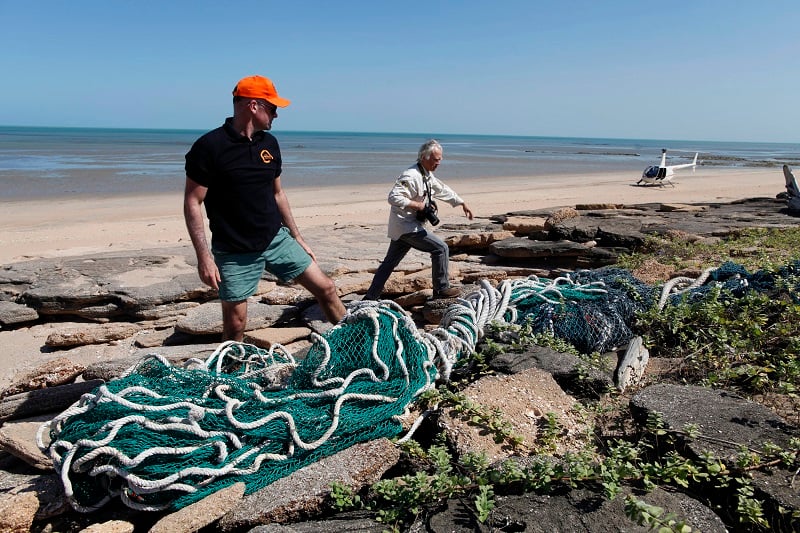 World Animal Protection team removing ghost nets and marine debris in Australia. (Photo: Dean Sewell / World Animal Protection)
World Animal Protection team removing ghost nets and marine debris in Australia. (Photo: Dean Sewell / World Animal Protection)
2019
- With our support, two venues in Thailand transitioned to become examples of elephant-friendly tourism in 2019, showing how tourism can help elephants instead of exploiting them. ChangChill and Following Giants serve as examples of sustainable, humane alternatives to cruel attractions and provide homes for captive elephants to live out their lives in relative peace and safety.
- In 2019, Mexico became the first country validated by the World Health Organization for eliminating rabies transmitted from dogs to humans. This landmark was built on our successful work in Puebla – one of the worst rabies-affected areas
- To ensure the long-term continuity of the Global Ghost Gear Initiative, we transitioned leadership to the Ocean Conservancy in 2019. This non-profit has been driving science-based solutions to marine debris for more than 30 years.
- In a landmark achievement, we helped pass Bill S-203 in 2019, which banned the trade, breeding and display of cetaceans (whales, dolphins and porpoises) for entertainment in Canada by mobilizing Canadians to write letters and presenting parliamentarians with the scientific evidence against keeping marine mammals in captivity.
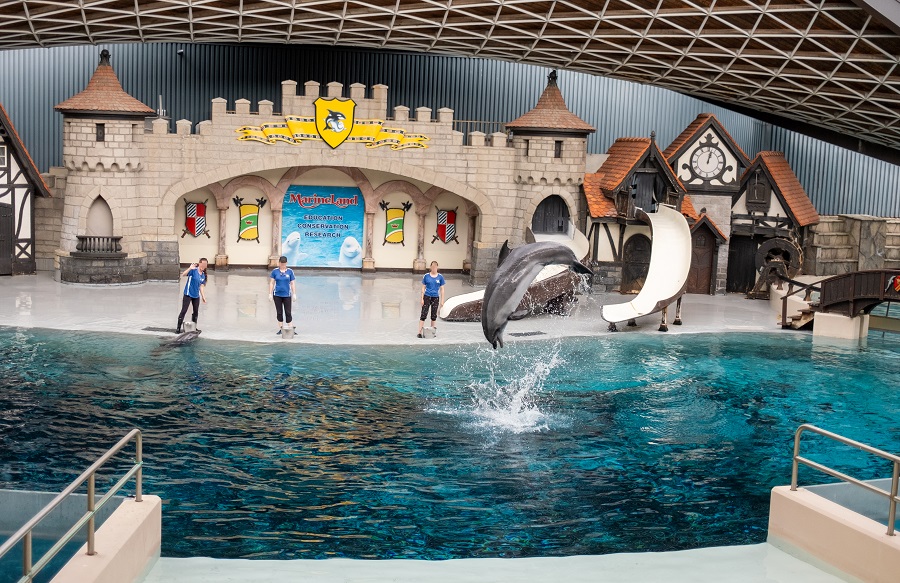 Dolphins at Marineland Canada. (Photo: Sasha Rink / World Animal Protection)
Dolphins at Marineland Canada. (Photo: Sasha Rink / World Animal Protection)
2020
- Through our partnership with Blood Lions, we mobilized thousands of supporters worldwide which led to the government’s public announcement to end the captive breeding of lions for medicines, walking, petting and canned trophy hunting. This move will save countless lions from exploitation and captivity in South Africa.
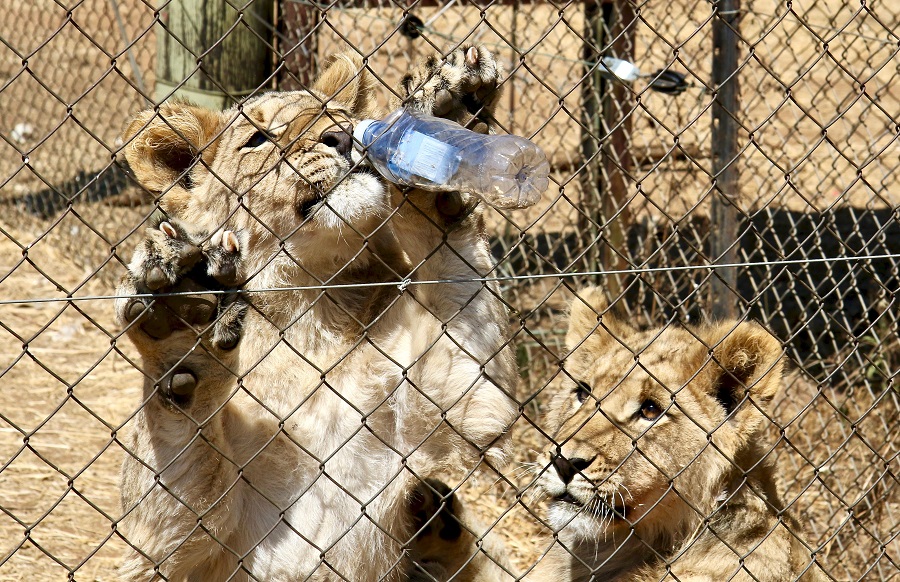 (Photo: Blood Lions)
(Photo: Blood Lions)
- We launched our Traditional Alternatives to Wild Animal Preparations website to help the traditional Asian medicine industry find plant-based alternatives to wild animal ingredients, significantly reducing wildlife exploitation.
- In response to the global pandemic, we inspired more than one million people to support the end of the global wildlife trade. We raised mass public awareness on the link between the exploitation of wild animals and the transfer of diseases to people, putting pressure on the G20 countries to take action to end this cruel trade.
- We joined forces with the World Cetacean Alliance to launch three new Whale Heritage Areas. This global accreditation recognizes outstanding destinations that implement and celebrate responsible and sustainable whale and dolphin watching.
2021
- In a historic win, the South African government officially committed to halting lion exploitation and to phase out captive lion breeding and petting experiences. This decision followed a two-year campaign with Blood Lions and other partners.
- Ended elephant rides and shows at African Lion Safari and pushed Canada’s Accredited Zoos and Aquariums to prohibit these activities at their member zoos.
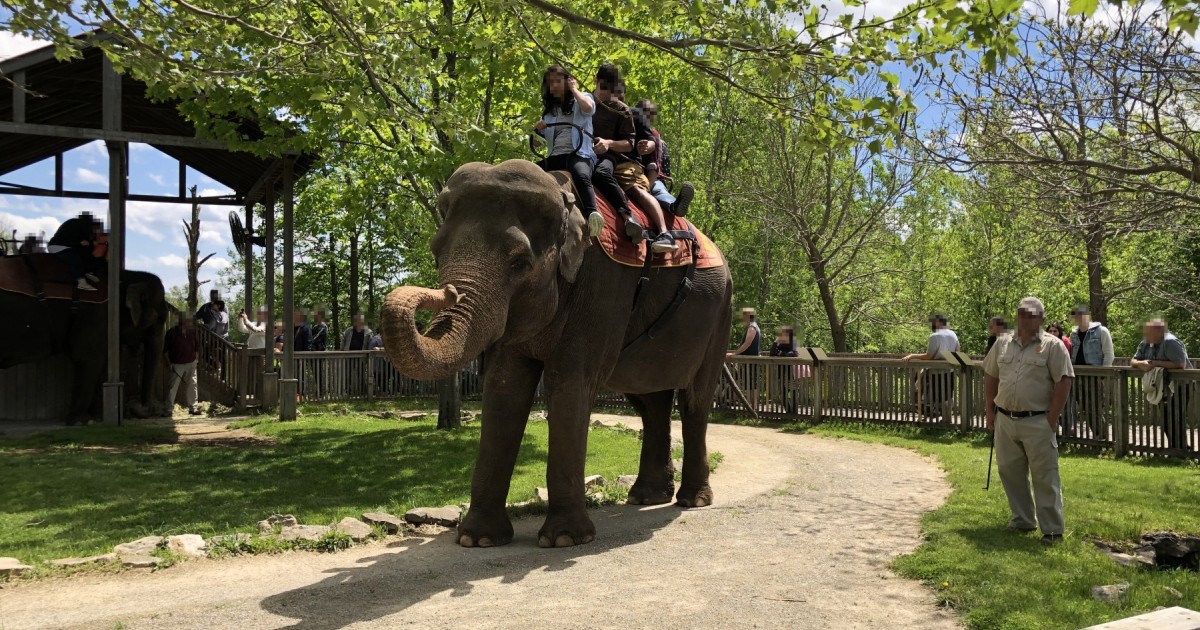 An elephant giving rides at African Lion Safari, Canada. (Photo: World Animal Protection)
An elephant giving rides at African Lion Safari, Canada. (Photo: World Animal Protection)
2022
- Three traditional medicine associations in North America endorsed our Traditional Alternatives to Wild Animal Preparations website, marking a shift towards more wildlife-friendly practices in traditional medicine.
- By the end of 2022, 261 travel companies have committed to not selling or promoting elephant rides to tourists, reflecting a broader industry movement toward elephant-friendly tourism and greater respect for animal welfare.
- We partnered with Navius Research to release a groundbreaking report that explores the impact of meat consumption and animal agriculture on Canada’s climate targets. This report revealed that reducing meat consumption would cut agriculture emissions, while saving the economy billions.
2023
- The Wildlife Heritage Areas program was launched, expanding the effort to promote tourism destinations that respect animal welfare and prioritize community-based, sustainable practices.
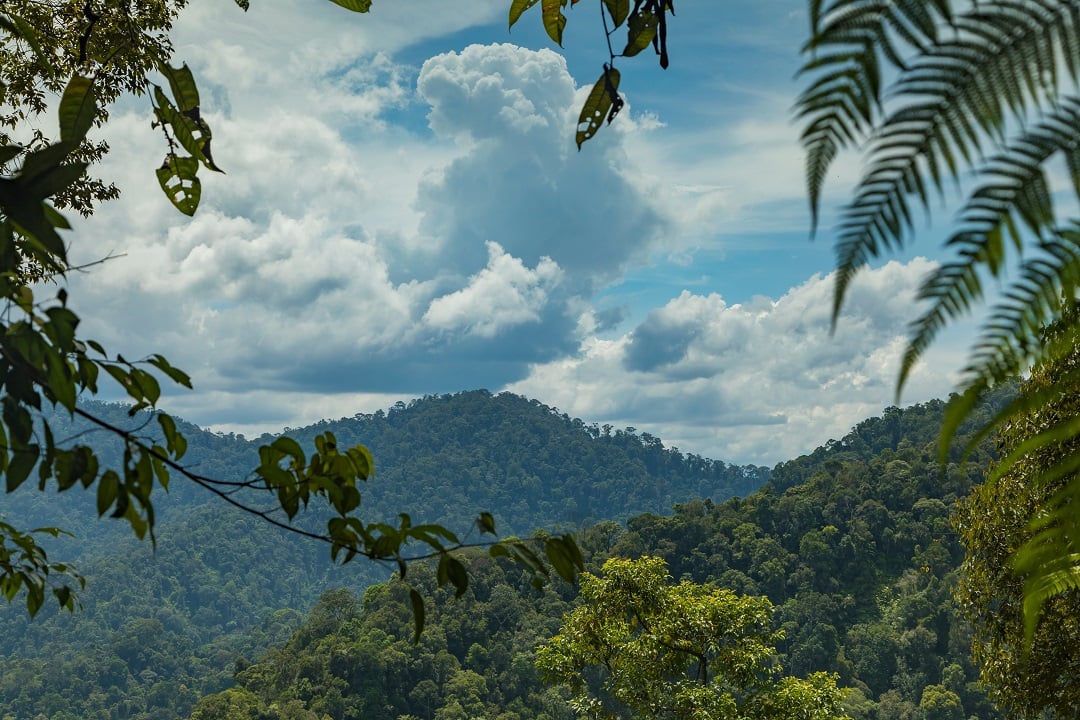 Gunung Leuser Orangutan-Heritage-Area (Photo: alvarobueno / Shutterstock)
Gunung Leuser Orangutan-Heritage-Area (Photo: alvarobueno / Shutterstock)
- We released ‘Putting a Stop to Cruelty: Why South Africa's Commercial Captive Lion Industry Should Be Shut Down for Good’, calling on the government to honour its 2021 commitment to phased out captive lion breeding. This shocking report outlined the suffering of lions, detailing cases of starvation and cannibalism, the industry’s ties to international crime syndicates, and the risks of disease and injury to local people involved.
2024
- Over 6,350 doctors and practitioners, alongside 22 major pharmaceutical companies, took our Wildlife-Friendly Medicine pledge to avoid using wild animal ingredients, marking a shift in the pharmaceutical industry's practices.
- The South Africa government confirmed their commitment to the long-awaited phase out of captive lion breeding and exploitation.
- Launched an interactive wildlife incident map - a database of zoonotic disease outbreaks, wildlife trade issues and escapes and attacks across Canada, serving as a vital resource and advocacy tool, adding a layer of transparency to Canada’s opaque captive wildlife problem.
- Supported Jakarta Animal Aid Network (JAAN) in the rescue of macaque monkeys from the cruel dancing monkey industry.
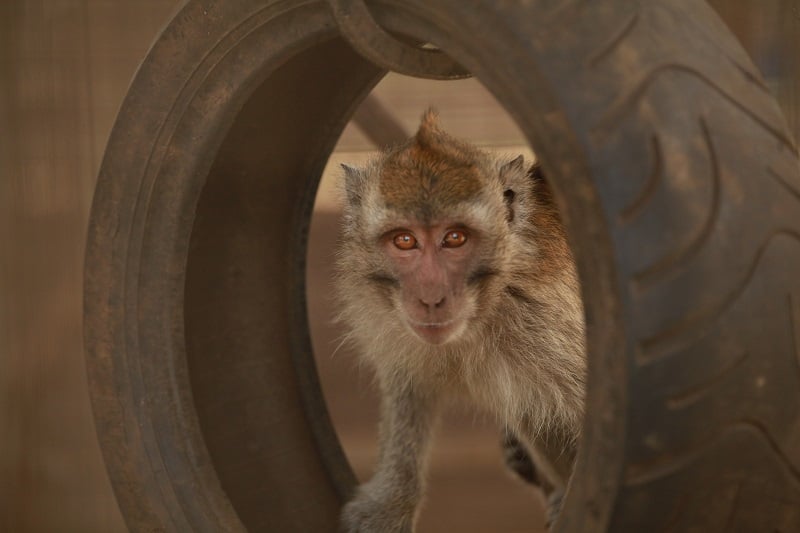 One of the monkeys rescued at the JAAN rescue centre. (Image courtesy of Jakarta Animal Aid Network.)
One of the monkeys rescued at the JAAN rescue centre. (Image courtesy of Jakarta Animal Aid Network.)
Looking ahead
We remain committed to achieving lasting, systemic change for animals worldwide, ensuring a future where all animals can live free from harm and exploitation.
We're proud of our past and excited about our future. We know the fate of animals’ lives rests in our hands. The scale of the challenge is immense, but we will build on our successful heritage to create lasting, systemic change. We will speak out with courage and determination until every animal can live a good life, without fear of being harmed.
Together, we can transform the lives of animals around the world.